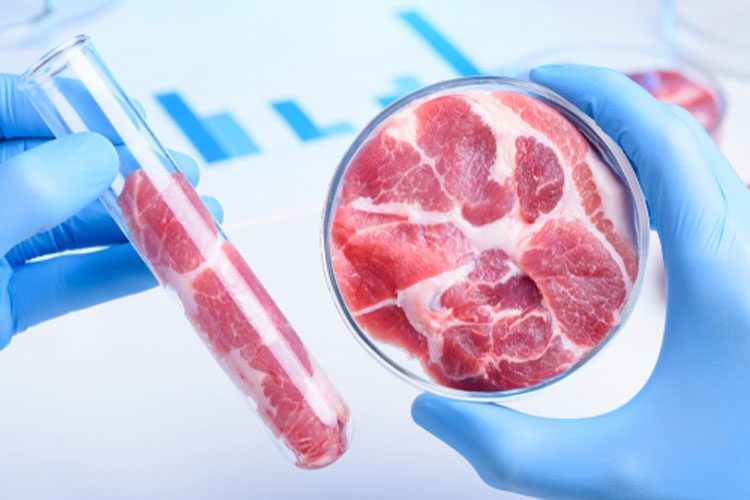Replacing cattle with cultured meat “may not be a simple replacement of high-impact with low-impact”
- Like
- Digg
- Del
- Tumblr
- VKontakte
- Buffer
- Love This
- Odnoklassniki
- Meneame
- Blogger
- Amazon
- Yahoo Mail
- Gmail
- AOL
- Newsvine
- HackerNews
- Evernote
- MySpace
- Mail.ru
- Viadeo
- Line
- Comments
- Yummly
- SMS
- Viber
- Telegram
- Subscribe
- Skype
- Facebook Messenger
- Kakao
- LiveJournal
- Yammer
- Edgar
- Fintel
- Mix
- Instapaper
- Copy Link
Posted: 19 February 2019 | New Food | 2 comments
Currently proposed types of lab-grown meat cannot provide a cure-all for the detrimental climate impacts of meat production without a large-scale transition to a decarbonised energy system, a new study has found.


In a first-of-its-kind study from the Oxford Martin School’s LEAP (Livestock, Environment and People) programme, the impact of several production methods for lab-grown and farmed beef has been assessed, taking into account the differing greenhouse gases produced. Its new projections reveal that replacing cattle with cultured meat may not be a simple replacement of high-impact with low-impact. Published in Frontiers in Sustainable Food Systems, the study’s findings highlight that the climate impact of cultured meat production will depend on its energy demands and the availability of low-carbon energy sources.
“There has been a great deal of public interest in cultured meat recently, and many articles highlight the potential for substituting cattle beef with cultured meat to provide an important climate benefit. We show that it is not yet clear whether this is the case, partly because of uncertainties about how cultured meat would be produced at scale. An important issue in comparing farmed and cultured beef is that the different warming impacts of greenhouse gases are also not well accounted for in the standard measure used in carbon footprints,” said lead author Dr John Lynch.
To provide a rigorous comparison of the potential climate impacts of lab-grown meat and beef cattle, the researchers examined available data on the emissions associated with three current cattle farming methods and four possible meat culture methods, assuming current energy systems remained unchanged.
Using this data, they modelled the potential temperature impact of each production method over the next 1,000 years. Their model showed that while cattle initially have a greater warming effect through the release of methane, in some cases the manufacture of lab-grown meat can ultimately result in more warming. This is due to the fact that even if consumption of meat were entirely phased out the warming from carbon dioxide would persist, whereas warming caused by methane ceases after only a few decades.
The study also highlights that both cultured meat and cattle farming have complex inputs and impacts that need to be considered in fully appreciating their effect on the environment. For example, creating more grazing land for cattle often results in significant deforestation that could greatly increase the CO2 footprint of cattle systems – but can prove difficult to standardise in emissions footprints – while producing food in urban laboratories could free up land for storing CO2 or other purposes.
Dr Lynch concludes, “The climate impacts of cultured meat production will depend on what level of sustainable energy generation can be achieved, as well as the efficiency of future culture processes.”





It is not just a matter of hectares. Lots of land used for grazing is marginal and can not support agriculture or forests. How is that taken into acount?
It would be useful to actually look beyond the click-bait headline and do a real analysis. E.g., https://www.gfi.org/2019-02-19
Thanks!